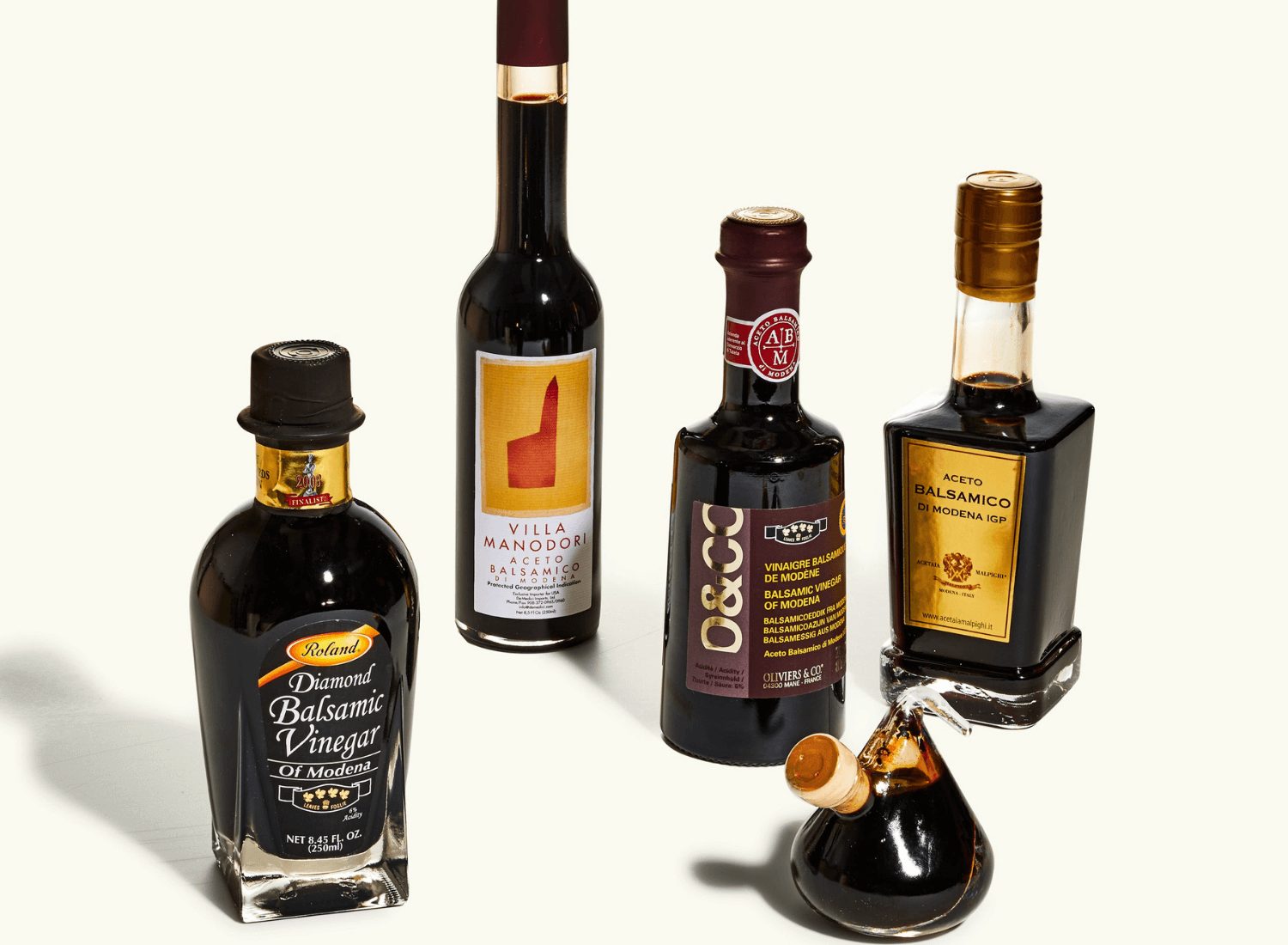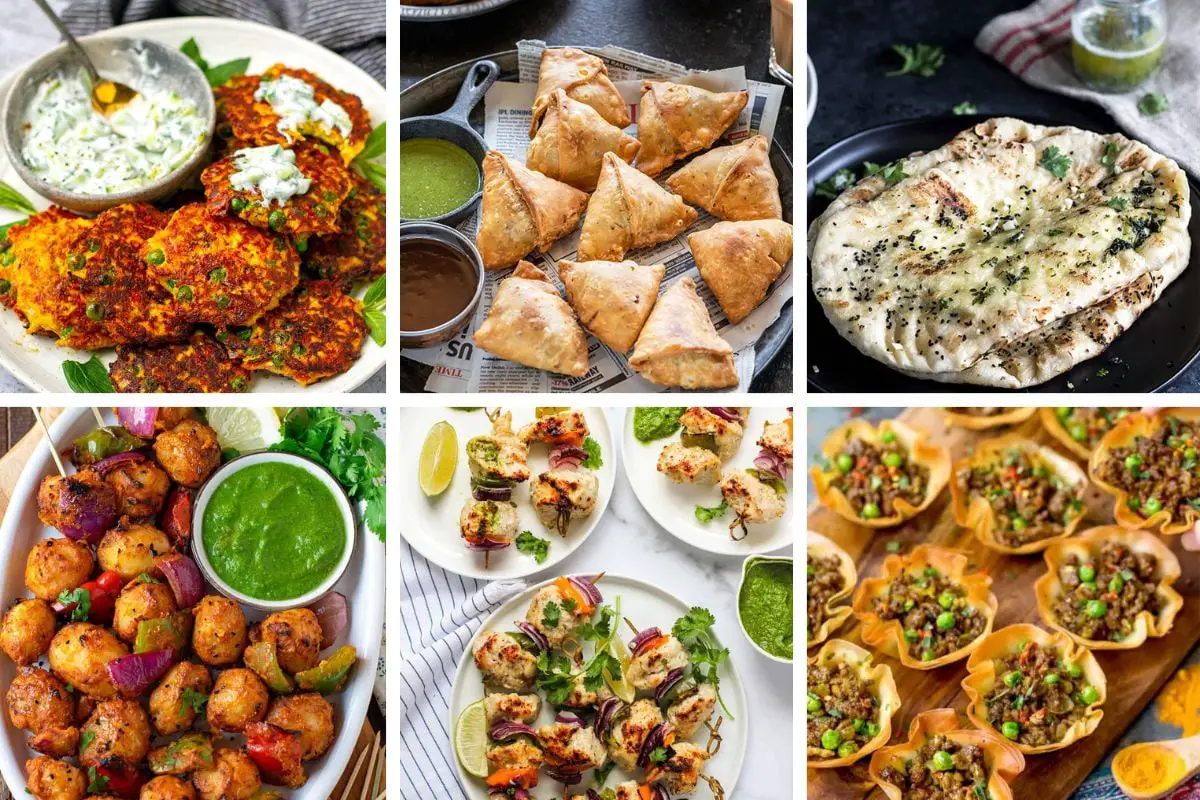Pan-Asian cuisine refers to the wide array of food across the Asian continent, which is the most populous region in the world. Since the Pan-Asian food menu is one of the largest ones in the world, we will be breaking it down for you guys, region by region.
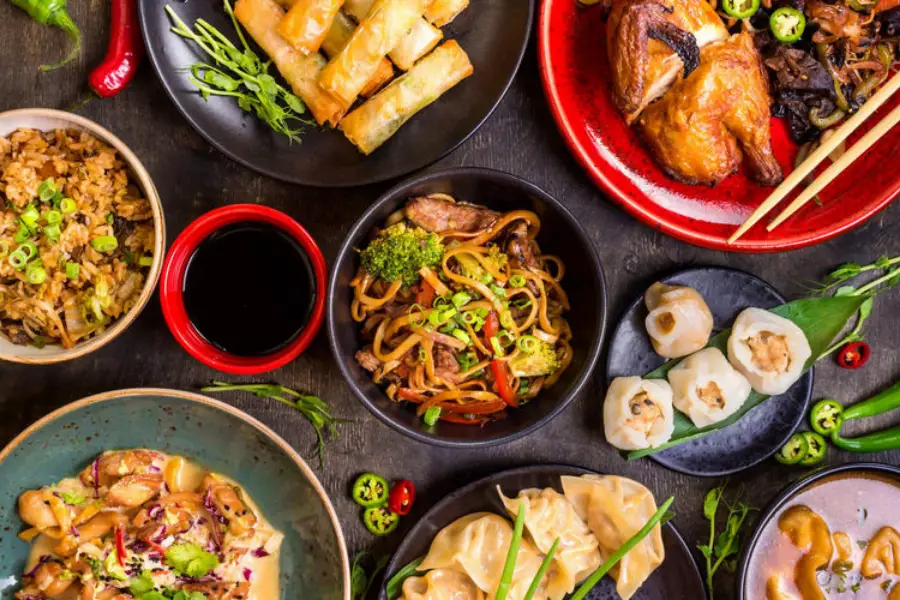
Today, we will be focusing on types of East Asian cuisine which is mostly famous for Chinese, Japanese, Korean, and Mongolian cuisines.
The East-Asian food menu is one of the most sophisticated and unique which stands out completely from the crowd, and it is sure to make you a fan of it. We know, we are! The palate is huge, brace yourself.
Preparation:
Staple ingredients
Rice is a staple in such cuisines and so are noodles, mung beans, tea, seafood, mutton, bok choy (Chinese cabbage), ginger, garlic, sesame seeds, chilies, dried onions, soy, and tofu. Long-grain rice is prominent in China while Korea and Japan prefer short-grain rice.
Condiments
East Asian cuisine has come a long way with their extensive use of oil, fats, and sauces which give the umami, strong flavors to their dishes.
Methods used
While a lot of different methods are used in preparing dishes of this cuisine, stir-frying, steaming, and deep-frying remain the popular ones. The best example of stir-frying dishes is our loved Teriyaki vegetable salad.
Types of East Asian Cuisine:
Chinese Cuisine
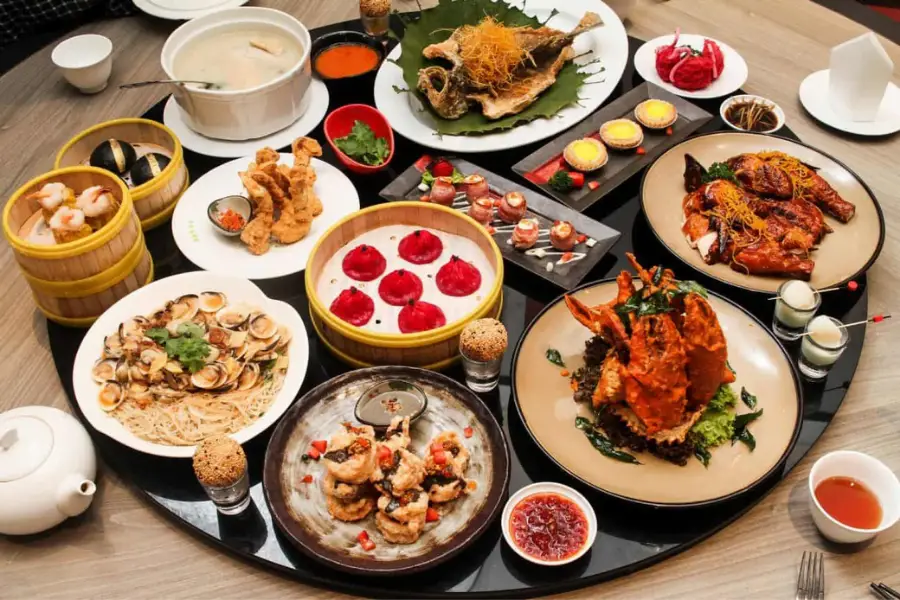
Chinese cuisine itself includes several regional cuisines including Anhui, Cantonese, Fujian, Hunan, Jiangsu, Sichuan, Shangdong, and Zhejiang. The style of cooking and their differences mostly depend upon the climate, geography, availability of resources, and cultural lifestyle.
Well-known dishes to try: Beijing Kaoya (Peking Duck), Choudoufu (Stinky tofu), Chow mein, Gong Bao Ji Ding (Kung Pao Chicken)
Hong Kong Cuisine
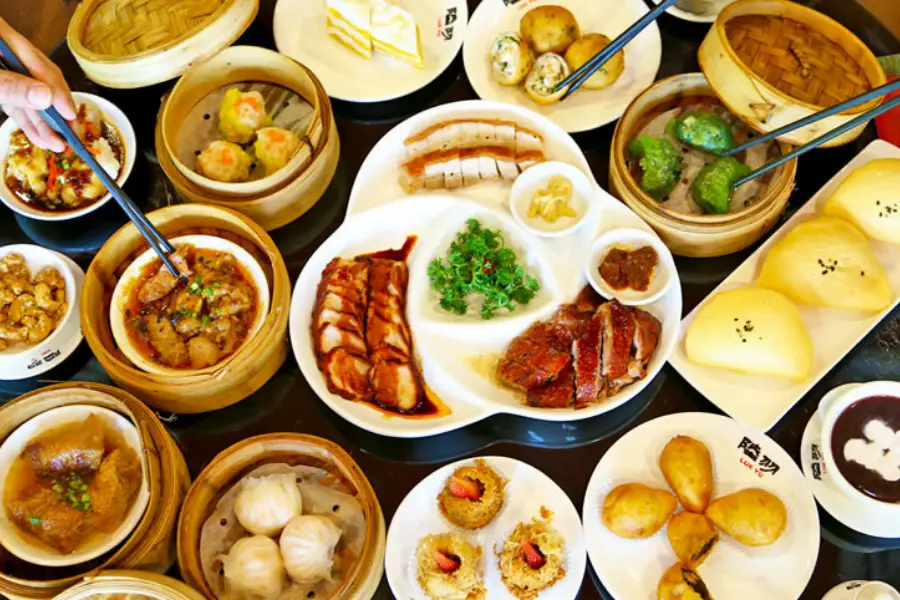
It is mostly influenced by the Chinese, Japanese, and the West. This is because it was also one of the British colonies.
Well-known dishes to try: Fish Balls, Wonton Noodles, and Egg Waffle
Japanese Cuisine
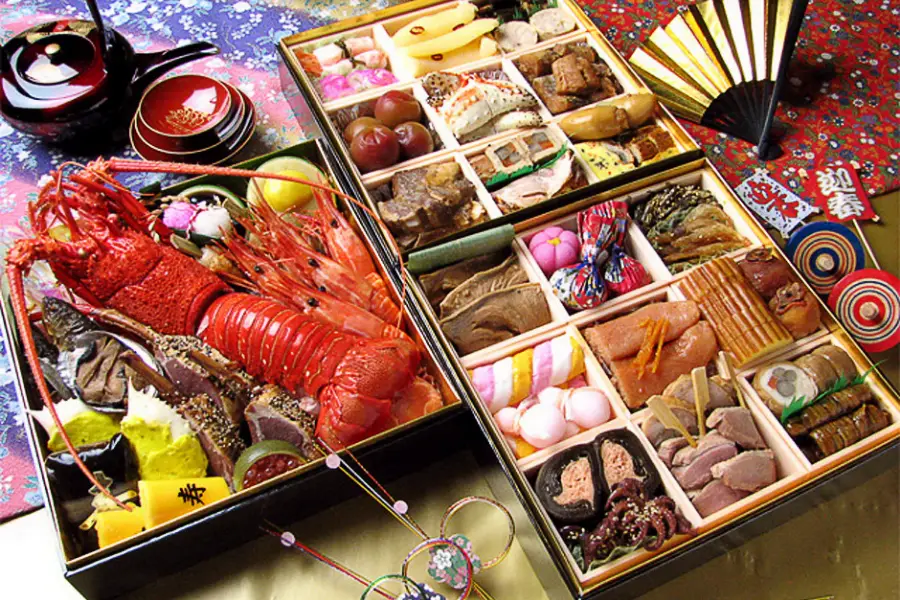
Japanese dishes are dependent upon the seasonal foods, which is one of the reasons for its clout. The focus is mainly upon the natural and fresh flavors while preparing the dishes. Due to a large supply of seafood, it is widely used in Japanese dishes.
Well-known dishes to try: Sushi, Sashimi, Mochi, Tempura, Onigiri (rice balls)
Korean Cuisine
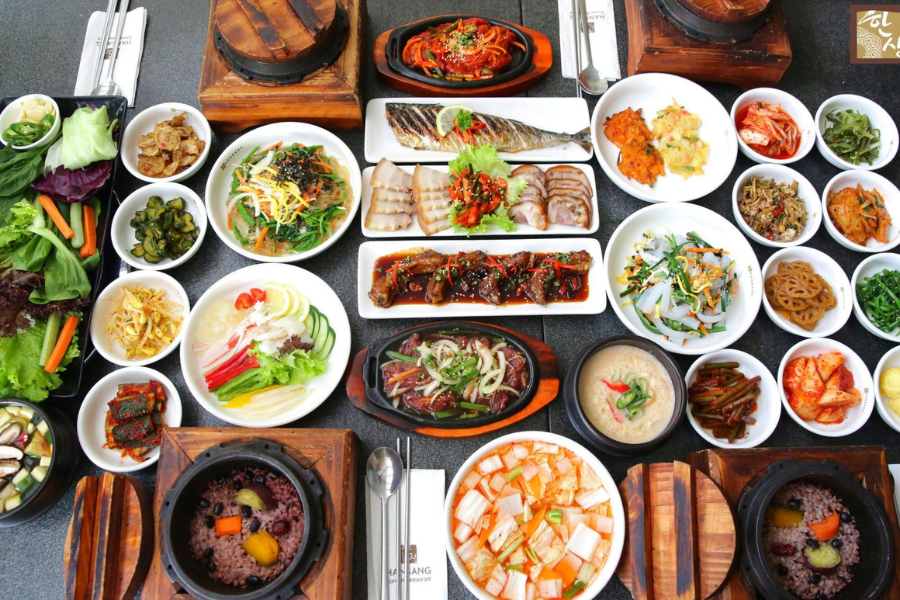
Korean dishes revolve around the three most common ingredients: rice, vegetables, and meat where the rice is preferred to be short-grained. Other common ingredients include sesame oil, soy sauce, and beans. They use the Korean barbecue or gogi gui for grilling their meats.
Well-known dishes to try: Kimchi (fermented vegetables), Naengmyeon (cold buckwheat noodles), Hoeddeok (pancakes)
Mongolian Cuisine
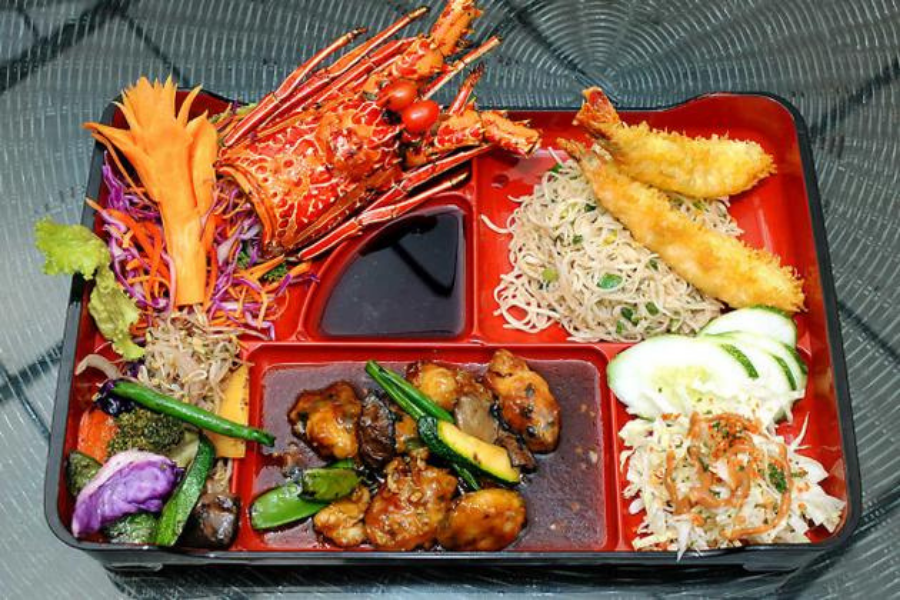
Since the use of vegetables and spices are restricted due to the extreme climate conditions prevailing in the region, the use of dairy and meat is widespread in their dishes.
Well-known dishes to try: Buuz and Khuushuur (dumplings), Khorkhog
Singaporean Cuisine
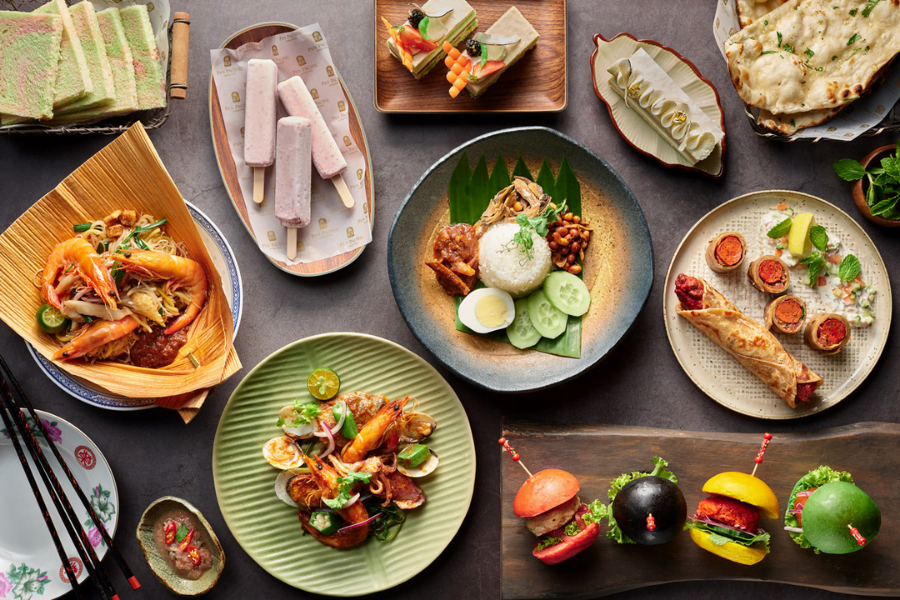
Singaporean culture is highly influenced by Chinese and Japanese, which clearly shows in their food habits as well. However, the indigenous Austronesian Malay cuisine is also prevalent in many parts of this country.
Well-known dishes to try: Bak Chang (dumpling), Bak kut teh (pork rib soup), Ban Mian (flat noodles), Drunken prawns, Fish ball noodles.
Taiwanese Cuisine
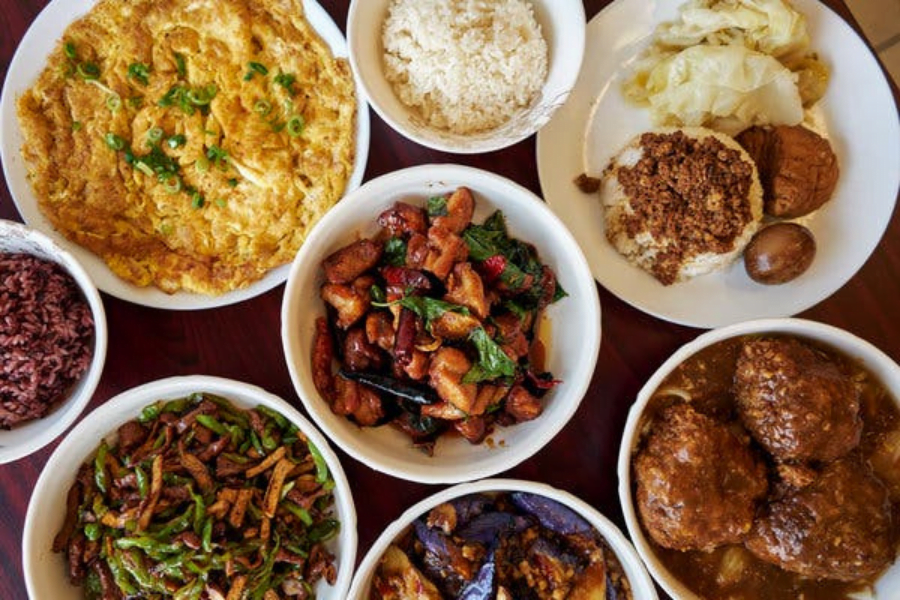
Probably the most underrated oriental cuisines you will ever try. They are highly influenced by Japanese culture and cuisine, therefore, the common use of seafood. Soy, chicken, and rice are also used liberally here.
Well-known dishes to try: Bubble tea, Gua Bao, Oyster Omelette, and Minced pork rice.
We tried to cover most of the oriental cuisine, but keep in mind, the palate is way bigger than this. However, we are certain you got the gist of how rich East-Asian culture is and would definitely be trying it out! Let us know your thoughts on this.

